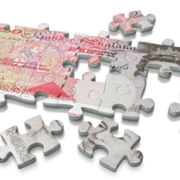22
Debt Consolidation and Refinance Mortgages +
Posted by | Posted in Debt Management | Posted on 22-07-2010
Mortgages are secured loans that are given to first time buyers, homeowners and people who have bad credit. Once you are accepted for the loan, you must repay the debt, which will include interest rates. Some refinancing loans have additional fees attached. The secured loans have collateral attached, means that if you fail to make payments, you are subject to foreclosure or repossession. The bank will come and take your home and sell it for the amount you owe.
This is why it is wise to make sure you know what you are getting into if you plan to refinance to consolidate your debts. Some loans permit buyers to repay the loans in 25 years, while others allow 30 repayments. Few of the lenders available on the Internet that offer refinance loans for consolidation of debts are aware that people go through hard times-or at least they don’t deal with people directly enough to actually feel this hardship through talking to them.
On the loans that offer lower interest rates, combine payments for debt consolidation. If you can manage to pay for the loan in the time stipulated, it is likely that you will take less time to pay back the loan amount borrowed. Once you find a lender to refinance your mortgage and combine your bills for debt consolidation, you will receive a loan based on capital and interest.
The Repayment loans for refinancing and consolidation make it easy, since the lenders will combine the interest and repayments into one monthly installment. Still, few lenders will allow you to repay the interest rates only; however, be aware that these types of loans do not combine your payments for consolidation; rather they put you at risk in some instances.
Still, there are several types of loans available that will help you refinance for debt consolidation, so keep an open mind and mull over your choices carefully before you make a final decision.
One of the most important tasks debtors must carry out to achieve in debt consolidation is keeping away from complications. When debtors have bills that are behind merely because they didn’t have the cash to repay the debts, then their stress will build. Some people may go on binge, spending instead of paying their bills, and procrastinating instead of working to restore their credit.
These people may believe that after three, seven or ten years the problem will end, since the credit reports remove any pending debts after seven years and any bankruptcies after ten years. The fact is, the problem doesn’t go away the problems only get bigger. Yes, it is true: after three years, if you manage to payoff a debt, then the debt is removed from your credit report. In addition, yes, it is true if after seven years you failed to make payments the debt is removed in most instances from your credit report.
Furthermore, it is true that in many cases, after ten years, bankruptcy is removed from your credit report. If you have the patience to wait this long, can tolerate the hassling phone calls and letters, and don’t mind worrying about going to court for this long, then by all means procrastinate.
Bills and debt consolidation is optional, however bill and debt reduction is your best bet. You can do this by start paying as much every month on your bills as possible to reduce your debts.



